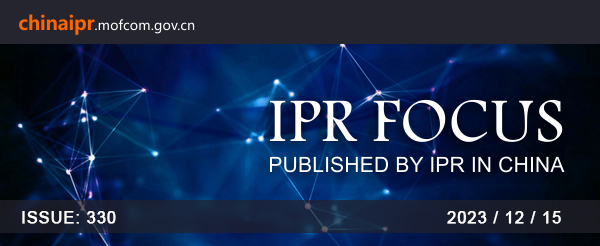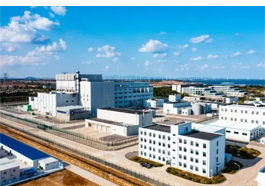
World’s 1st 4th-generation nuclear power plant goes into commercial operation in China
 |
The world's first fourth-generation nuclear power plant, China's Shidaowan high temperature gas-cooled reactor (HTGR) nuclear power plant, has officially gone into commercial operation, according to the National Energy Administration and China Huaneng Group. The |
project, located in Shandong province and with China owning fully independent intellectual property rights, is jointly developed by China Huaneng Group, Tsinghua University and China National Nuclear Corporation. HTGR is an advanced type of reactor that features fourth-generation nuclear power technology, and a key development direction of nuclear power, said Zhang Zuoyi, chief designer of the major program of HTGR nuclear power station and dean of the nuclear energy and new energy technology institute of Tsinghua University...
![]()
Tech innovation critical to growth
 |
China's latest efforts to develop new productivity boosters and speed up the construction of a modern industrial system through technolo-gical innovation are expected to inject strong impetus into the country's high-quality economic development and boost the country's core global |
competitiveness, experts and company executives said. They called for heightened efforts to enhance independent innovation capabilities, make breakthroughs in core technologies in key fields by investing more in basic research and strategic forward-looking fields, and bolster the in-depth integration of cutting-edge digital technologies with the real economy. Their comments came as the tone-setting Central Economic Work Conference stressed efforts to lead the development of a modern industrial system through scientific and technological innovations, develop new productivity boosters and improve the resilience and security of industrial and supply chains. The meeting also emphasized the significance of vigorously advancing new industrialization, developing the digital economy, accelerating the development of artificial intelligence and fostering strategic emerging industries...
![]()
Ministry works to ease burdens for SMEs: official
 |
The Ministry of Industry and Information Technology will work to ease the burdens of companies further, especially for small and medium-sized firms, so that they can benefit from the government's slew of pro-growth policies, a government official said. During a teleconference |
on easing companies' burdens held on Monday, Vice Minister of Industry and Information Technology Xin Guobin said that since the start of this year, the ministry and other government departments have been implementing a special campaign that has led to 10,600 default and arrears resolutions for small and medium-sized enterprises. In the first 10 months of 2023, new tax cuts, fee reductions, tax rebates and fee deferrals across the country exceeded 1.6 trillion yuan (about 225.3 billion U.S. dollars), boosting market vitality, and the value-added industrial output of enterprises above designated size rose 4.1 percent year on year, official data shows...

Beijing court issues guideline to help litigants protect trade secrets
 |
A Beijing court has issued a guideline to help litigants protect their rights in trade secrets disputes, after seeing many litigants fail in lawsuits due to insufficient knowledge about the issue and weakness in evidence collection. The 61-article guideline, made by the Beijing Intellectual Property Court, |
answers frequently asked questions by litigants, such as what trade secrets are, what acts can be identified as infringement of trade secrets, which party needs to be held liable for trade secret infringement, and what evidence should be collected if suffering from such a lawsuit. "To help litigants understand trade secrets and relevant judicial procedures more specifically and intuitively, the document was introduced through FAQs," Song Yushui, vice-president of the court, told a news conference. She explained that making such a guideline is not only because trade secrets are an important intellectual property protection object as well as a core competitiveness of enterprises, but also because relevant infringements are relatively hidden and the right holders have difficulties in providing evidence...